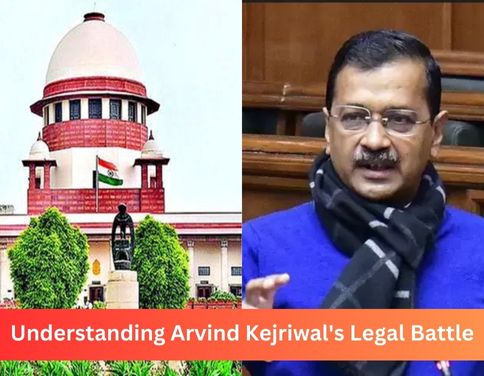In the recent legal saga surrounding Delhi Chief Minister Arvind Kejriwal’s arrest, a myriad of complexities and contentions have arisen, stirring debates and legal deliberations across the nation. Let’s delve into the intricacies of the case, dissecting the arguments presented, and shedding light on the key legal aspects at play.
The Illegality of Arvind Kejriwal’s Arrest
Arvind Kejriwal’s legal counsel, represented by senior advocate Abhishek Manu Singhvi, vehemently asserts the illegality of his arrest, branding it as politically motivated. Singhvi contends that the arrest lacked the necessary procedural requisites mandated by the anti-money laundering law. Kejriwal’s counsel underscores that the power to arrest should be predicated on establishing guilt rather than mere suspicion, citing the threshold delineated in Section 45 of the Prevention of Money Laundering Act (PMLA).
The Jurisdictional Maneuver: Supreme Court vs. Trial Court
In the intricate legal battle surrounding Arvind Kejriwal’s arrest, the decision to bypass the trial court and directly appeal to the Supreme Court unveils a strategic approach laden with profound implications. Abhishek Manu Singhvi, Kejriwal’s legal representative, offers clarity on this course of action by emphasizing the expansive jurisdiction wielded by the Supreme Court. By availing themselves of this higher judicial authority, Kejriwal’s legal team aims to leverage the court’s broader purview to address the multifaceted dimensions of his case with utmost efficacy and scrutiny.
This strategic maneuver not only underscores the gravity of the legal intricacies surrounding Kejriwal’s arrest but also highlights the nuanced interplay between jurisdictional considerations and the pursuit of justice. Furthermore, by directly engaging the apex court, Kejriwal seeks to amplify the visibility and significance of his legal plight, thus fostering a robust discourse on the broader implications for democratic principles and constitutional rights. In essence, the decision to approach the Supreme Court directly signifies a calculated legal strategy aimed at navigating the complex terrain of Indian jurisprudence while concurrently spotlighting the profound stakes involved in Kejriwal’s legal battle.
Allegations of Political Vendetta and Misuse of Investigative Agencies
Kejriwal’s affidavit vehemently denounces his arrest as a manifestation of political vendetta orchestrated to stifle dissent and confer undue advantages upon the ruling party amidst the electoral milieu. The case, as posited by Kejriwal, epitomizes the purported misuse of investigative agencies by the Central government to target and harass political adversaries. Such allegations underscore the contentious nexus between law enforcement, politics, and the overarching principles of justice and democracy.
The Enforcement Directorate’s Perspective
Continuing Legal Proceedings
As the legal battle unfolds, with hearings slated for the ensuing days, the contours of justice and legality inextricably intertwine with the political landscape, engendering a discourse rife with conjecture, contention, and legal intricacies. The outcome of these proceedings holds profound implications not only for Arvind Kejriwal but also for the broader realms of governance, law, and democratic ethos.
In conclusion, the legal imbroglio surrounding Arvind Kejriwal’s arrest epitomizes the intersection of law, politics, and justice, underscoring the intricate dynamics at play within the Indian legal framework. As the saga unfolds, the pursuit of truth and justice remains paramount, transcending the realm of individual personalities to embrace the foundational principles of democracy and constitutionalism.
Follow Us On Instagram Follow Us On XAlso read: Mastering Data Science with R: Unveiling the Power of the R Language

